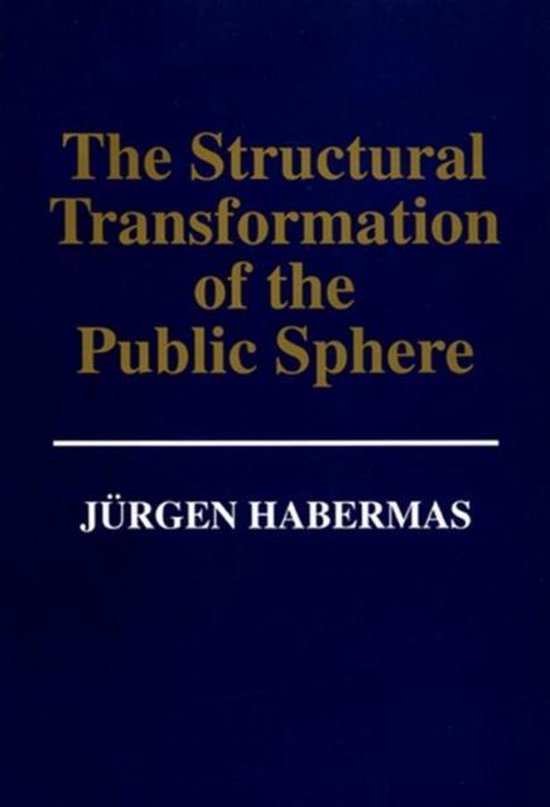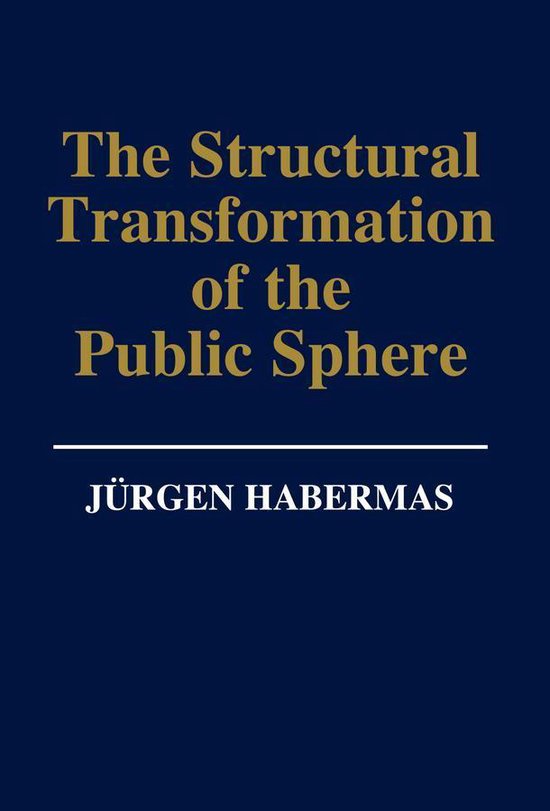
Structural Transformation Of The Public
This major work retraces the emergence and development of the Bourgeois public sphere - that is, a sphere which was distinct from the state and in which citizens could discuss issues of general interest. In analysing the historical transformations of this sphere, Habermas recovers a concept which is of crucial significance for current debates in social and political theory.
Habermas focuses on the liberal notion of the bourgeois public sphere as it emerged in Europe in the early modern period. He examines both the writings of political theorists, including Marx, Mill and de Tocqueville, and the specific institutions and social forms in which the public sphere was realized.
This brilliant and influential work has been widely recognized for many years as a classic of contemporary social and political thought, of interest to students and scholars throughout the social sciences and humanities.
This major work retraces the emergence and development of the Bourgeois public sphere - that is, a sphere which was distinct from the state and in which citizens could discuss issues of general interest. In analysing the historical transformations of this sphere, Habermas recovers a concept which is of crucial significance for current debates in social and political theory.
Habermas focuses on the liberal notion of the bourgeois public sphere as it emerged in Europe in the early modern period. He examines both the writings of political theorists, including Marx, Mill and de Tocqueville, and the specific institutions and social forms in which the public sphere was realized.
This brilliant and influential work has been widely recognized for many years as a classic of contemporary social and political thought, of interest to students and scholars throughout the social sciences and humanities.
| Auteur | | Jürgen Habermas |
| Taal | | Engels |
| Type | | Paperback |
| Categorie | | Mens & Maatschappij |





